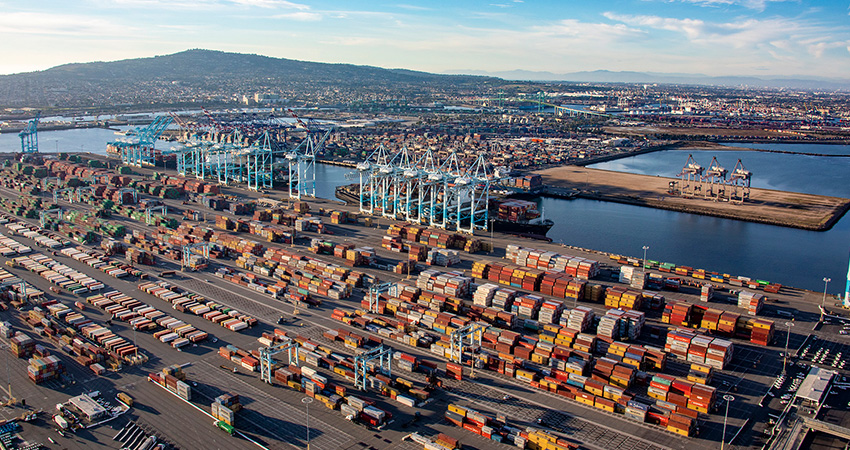A tentative contract agreement has been reached between the International Longshore and Warehouse Union (ILWU) and the Pacific Maritime Association (PMA), easing concerns about a strike at 29 West Coast ports disrupting incoming freight from the Asia-Pacific region ahead of the fall and Q4, nearly a year after the previous contract expired.
“We are pleased to have reached an agreement that recognizes the heroic efforts and personal sacrifices of the ILWU workforce in keeping our ports operating,” said PMA President James McKenna and ILWU President Willie Adams in a joint statement. “We are also pleased to turn our full attention back to the operation of the West Coast ports.”
The deal ended 13 months of negotiations, but still requires ratification by both parties. Talks recently included participation by Acting U.S. Labor Secretary Julie Su, whose February nomination by President Biden has been held up in the Senate, with opposition from both sides.
“Thanks to the hard work and perseverance of the leadership of the ILWU and the PMA, the tentative agreement delivers important stability for workers, for employers and for our country’s supply chain,” Su said in a statement. “This important milestone is welcome news to all.”
Biden lauded Su, saying she “used her deep experience and judgment to keep the parties talking, working with them to reach an agreement after a long and sometimes acrimonious negotiation.”
Before the tentative settlement was reached, recent walk-outs by ILWU members affected operations at a number of West Coast ports from Los Angeles to Seattle.
The threat of a strike by the ILWU has resulted in diversification and diversion of inbound freight to East Coast and Gulf Coast ports over the past year. The diversion has led to plummeting spot rates at West Coast ports, with prices rising on the East Coast.
With Biden having stepped in last December to prevent a crippling rail strike, the only major labor obstacle left that can impact logistics and transportation is a potential strike against UPS by the Teamsters union. This week, the Teamsters earned a major concession from UPS that calls for providing air conditioning in new delivery vehicles, and installing two fans in existing ones.
Sixty percent of rail workers are now covered by a sick leave policy under a deal struck last week, a major sticking point in those negotiations.

